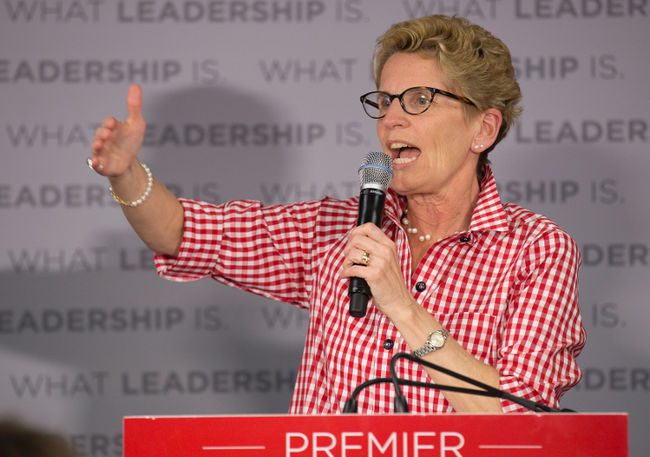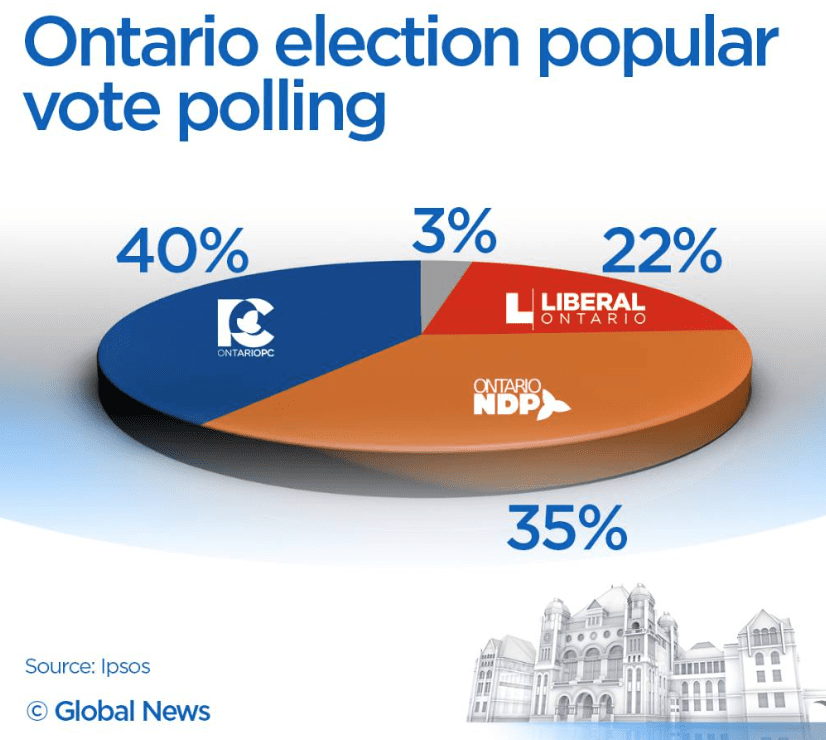On June 8, we're going to wake up in a completely different province.
Forget polite, reserved, stiff-upper-lip Upper Canadian Ontario. Quaint remnants of that province will remain, certainly, but whoever wins will usher in a sea change not just politically, but culturally- for Canada's most populous province. Our institutions will be forced to adapt, and fast….and keep on adapting. Where harmony and consensus once reigned, competition and struggle will now prevail.
If you can't tell, I'm pretty happy about this development which, it must be said, I did predict a few times. Though I'm not sure exactly what will come about yet, I can already predict a few ways in which the politics of the province will change:
Dirt-Digging Becomes A Feature
I cannot count the number of times in elections past where we had clear kill shots on candidates, and yet we took a pass, out of some sense of propriety (and more likely, worry that pulling the trigger on one situation would lead to a mutual assured destruction-type situation).
Clearly, though, those fears were overblown. As I type this the Liberals are openly running ads featuring allegations of Doug's drug dealings. It turns out that you can knock opposing candidates for things they've said and done without "the key message" being lost, or without the really damaging personal life issues for all three party leaders becoming too much of a distraction from the already chaotic main race.
Still, Canadian politics being what it is, the parties are drawing from set lists of doings and sayings they have deemed to be controversial and sticking religiously to them rather than engaging in a creative and organic back-and-forth. For example, this hilarious ad from the NDP, circa 2010, where Andrea Horwath is being advertised as a leader who can "balance a budget in heels" could have proved useful last week when Horwath's shopping habits briefly became an issue on the campaign trail, and her party condemned the attacks on her clothing choices as sexist. Oh well …..
One Kind of "Radical" Is OK The Other Kind Is Not
While all the parties are trying to slam one another as being off-side with that mythical golden moderate mean, the most eyebrow-raising development of this election is that NDP candidates are apparently allowed to get away with saying questionable things with the full-throated endorsement of their leader.
We can argue forever about what constitutes a firing offence and what isn't, but until we reach an agreement on that score, here's how it stands: Scarborough-Agincourt NDP candidate Tasleem Riaz posted the infamous Hitler meme, for whatever reason, has not apologized and remains a candidate while Tanya Granic Allen isn't one. Not only that, but there are calls still for Andrew Lawton and Merilee Fulton to be tossed as well.
You can make fun of Conservative whining about this double standard all you like, but the result is going to be that, win or lose, the PC Party is going to nominate and run more candidates that resemble Granic Allen as a result, if for no other reason than to own the libs.
Less Emphasis On Costed Platforms (Or Doing Away With Them Entirely)
"Fully costed" policy platforms are the cruelest joke in Canadian politics, and that's saying something. We've heard a lot of bleating about how Canadian voters can't possibly be expected to cast their vote if they don't have a clear idea of what the parties are promising, which is quite humorous considering that the financial estimates in these platforms aren't worth the paper they're printed on.
Let's leave aside the fact that these things are written by people for whom a couple hundred thousand dollars constitutes a "rounding error" (because that's what they say every time they are caught having wasted that much money). The fact that the parties have all admitted to using the Liberal numbers should invalidate them immediately, as per the Auditor General's repeated admonitions of the government's creative accounting.
Truth be told, doing away with platforms (and press junkets on the campaign buses, too) may force Ontarians to pay closer attention to the campaign so they can discern the truth of the platforms for themselves. And that's certainly consistent in an election where norms are being broken faster than you can say "sorry, not sorry."
Written by Josh Lieblein







